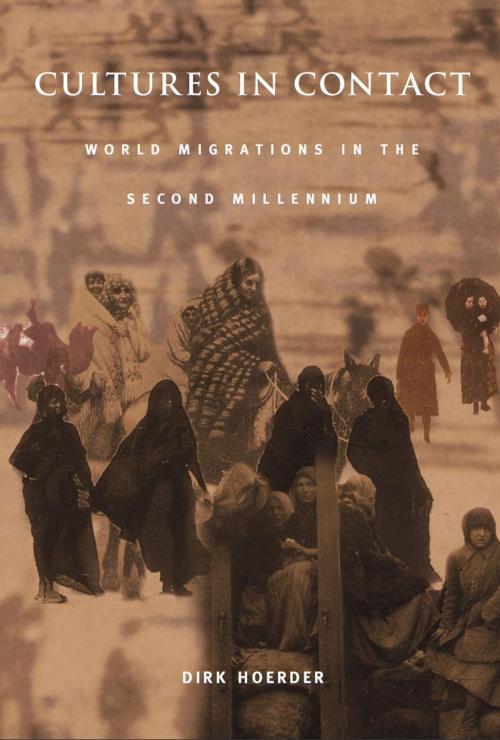Cultures in Contact
World Migrations in the Second Millennium
Nonfiction, Social & Cultural Studies, Social Science, Cultural Studies, Emigration & Immigration| Author: | Dirk Hoerder, Andrew Gordon, Alexander Keyssar, Daniel James | ISBN: | 9780822384076 |
| Publisher: | Duke University Press | Publication: | November 21, 2002 |
| Imprint: | Duke University Press Books | Language: | English |
| Author: | Dirk Hoerder, Andrew Gordon, Alexander Keyssar, Daniel James |
| ISBN: | 9780822384076 |
| Publisher: | Duke University Press |
| Publication: | November 21, 2002 |
| Imprint: | Duke University Press Books |
| Language: | English |
A landmark work on human migration around the globe, Cultures in Contact provides a history of the world told through the movements of its people. It is a broad, pioneering interpretation of the scope, patterns, and consequences of human migrations over the past ten centuries. In this magnum opus thirty years in the making, Dirk Hoerder reconceptualizes the history of migration and immigration, establishing that societal transformation cannot be understood without taking into account the impact of migrations and, indeed, that mobility is more characteristic of human behavior than is stasis.
Signaling a major paradigm shift, Cultures in Contact creates an English-language map of human movement that is not Atlantic Ocean-based. Hoerder describes the origins, causes, and extent of migrations around the globe and analyzes the cultural interactions they have triggered. He pays particular attention to the consequences of immigration within the receiving countries. His work sweeps from the eleventh century forward through the end of the twentieth, when migration patterns shifted to include transpacific migration, return migrations from former colonies, refugee migrations, and distinct regional labor migrations in the developing world. Hoerder demonstrates that as we enter the third millennium, regional and intercontinental migration patterns no longer resemble those of previous centuries. They have been transformed by new communications systems and other forces of globalization and transnationalism.
A landmark work on human migration around the globe, Cultures in Contact provides a history of the world told through the movements of its people. It is a broad, pioneering interpretation of the scope, patterns, and consequences of human migrations over the past ten centuries. In this magnum opus thirty years in the making, Dirk Hoerder reconceptualizes the history of migration and immigration, establishing that societal transformation cannot be understood without taking into account the impact of migrations and, indeed, that mobility is more characteristic of human behavior than is stasis.
Signaling a major paradigm shift, Cultures in Contact creates an English-language map of human movement that is not Atlantic Ocean-based. Hoerder describes the origins, causes, and extent of migrations around the globe and analyzes the cultural interactions they have triggered. He pays particular attention to the consequences of immigration within the receiving countries. His work sweeps from the eleventh century forward through the end of the twentieth, when migration patterns shifted to include transpacific migration, return migrations from former colonies, refugee migrations, and distinct regional labor migrations in the developing world. Hoerder demonstrates that as we enter the third millennium, regional and intercontinental migration patterns no longer resemble those of previous centuries. They have been transformed by new communications systems and other forces of globalization and transnationalism.















